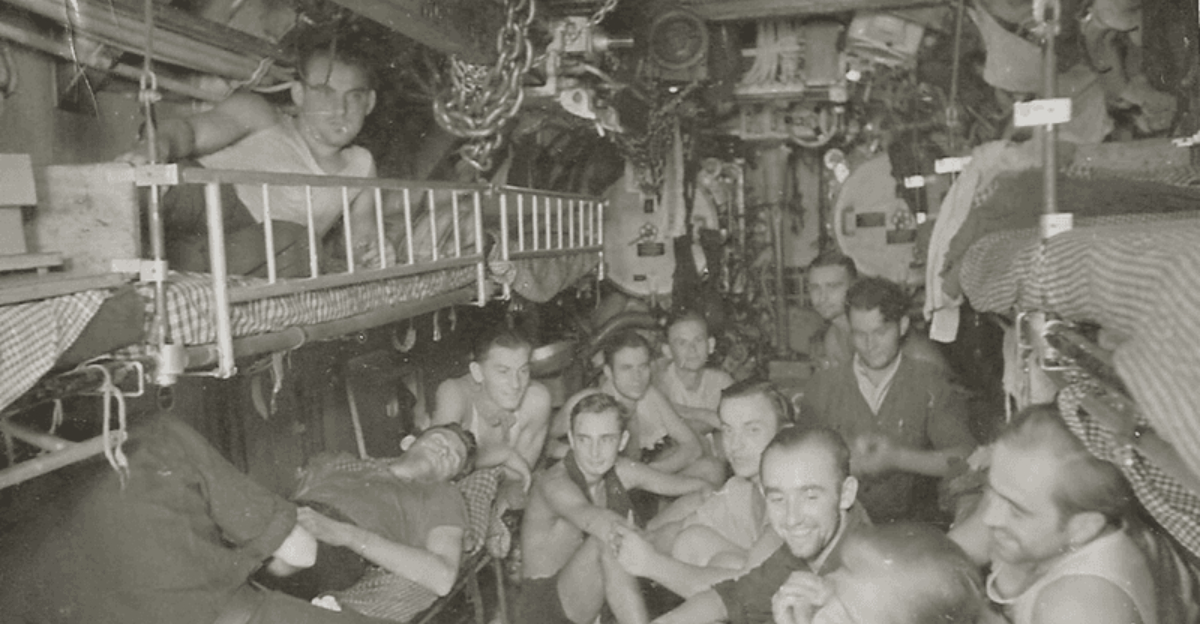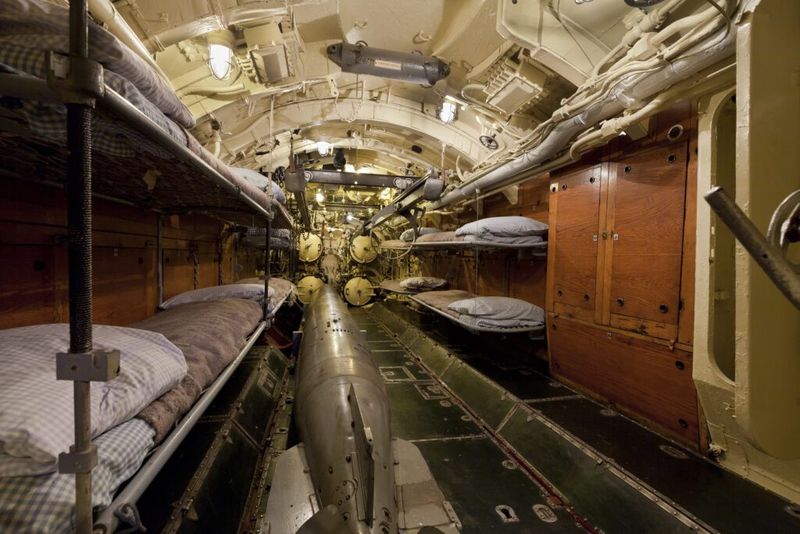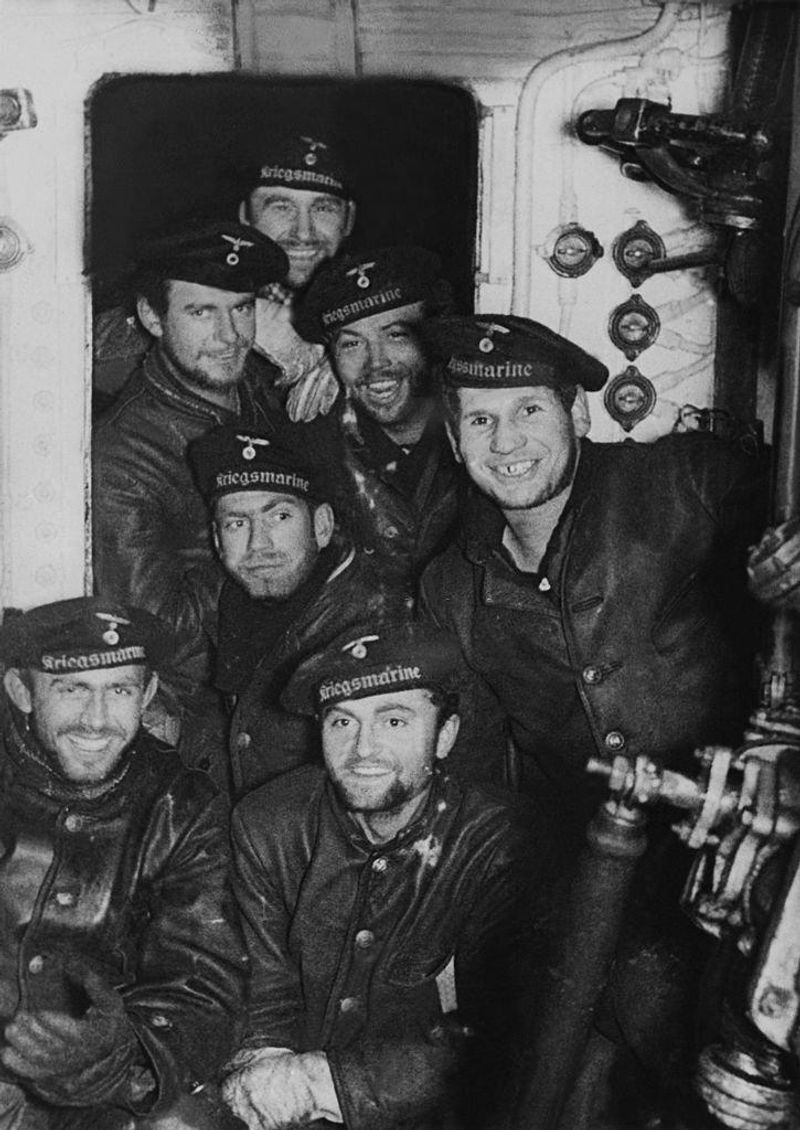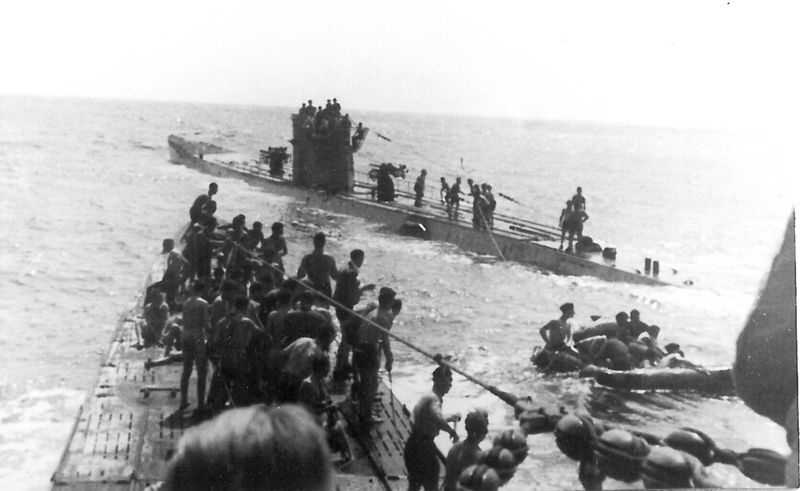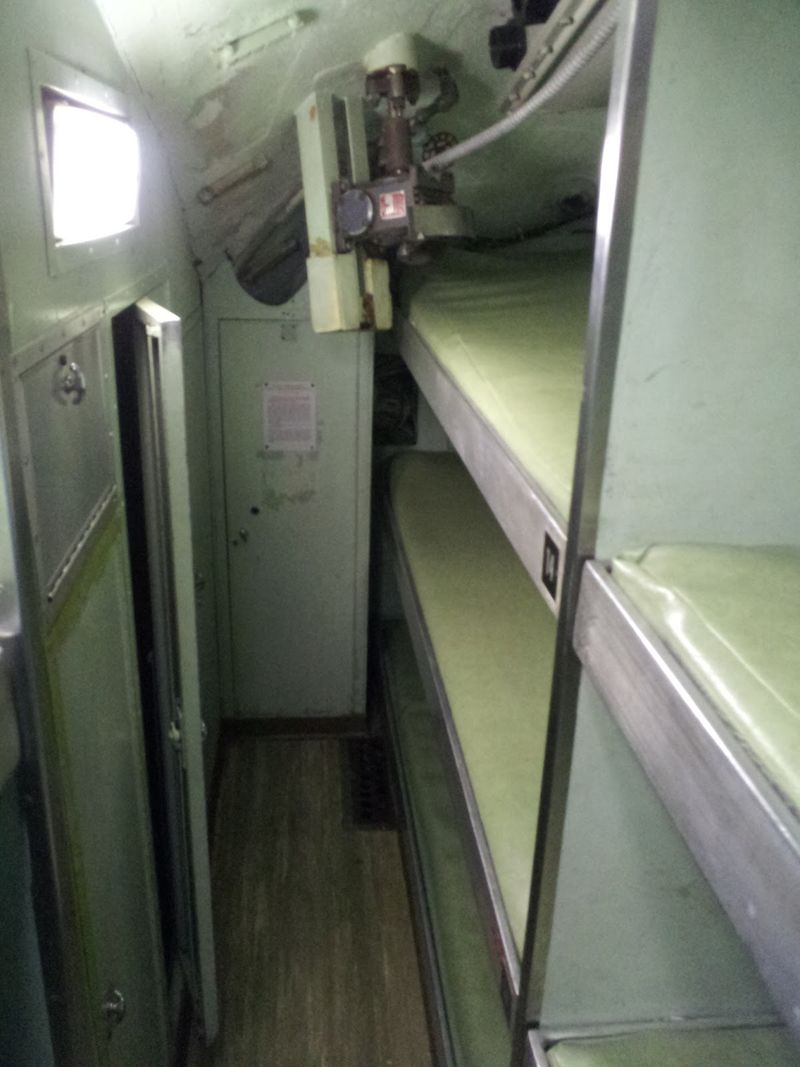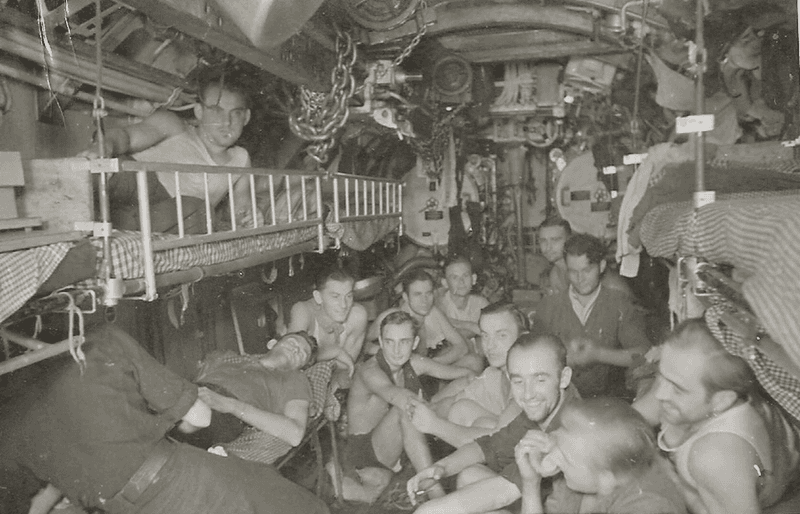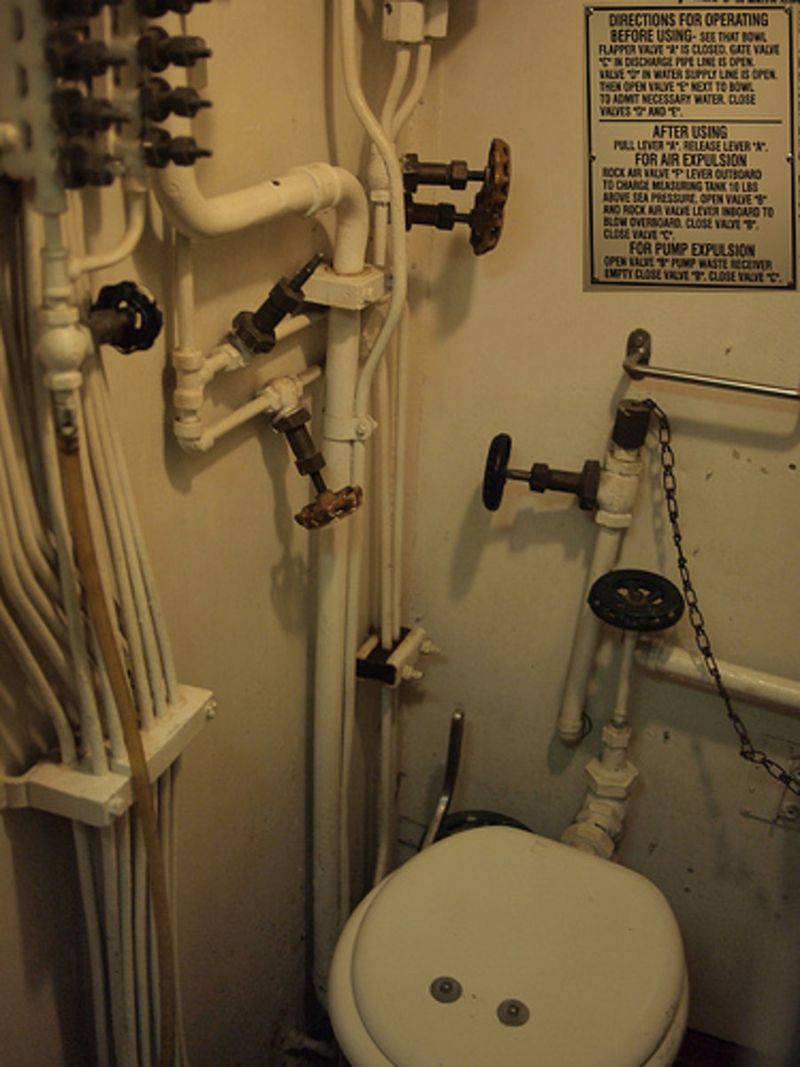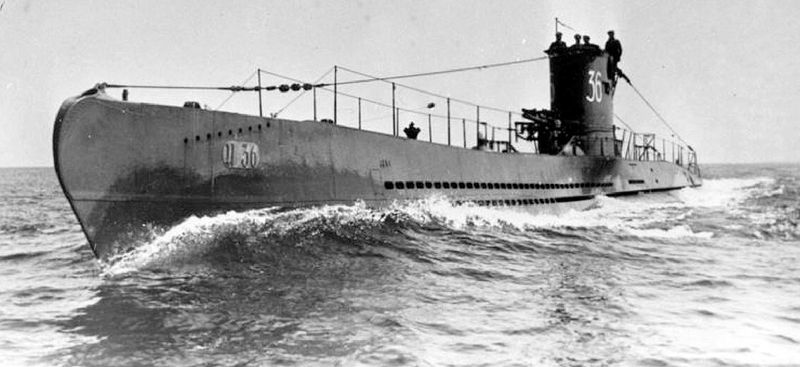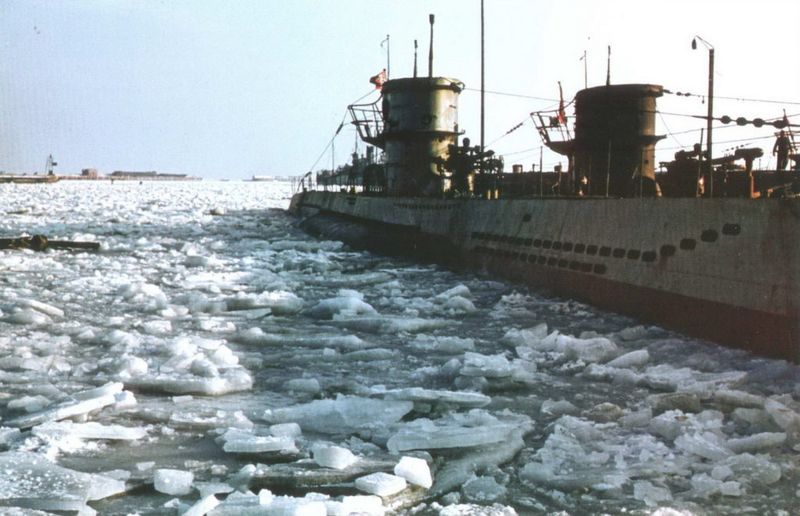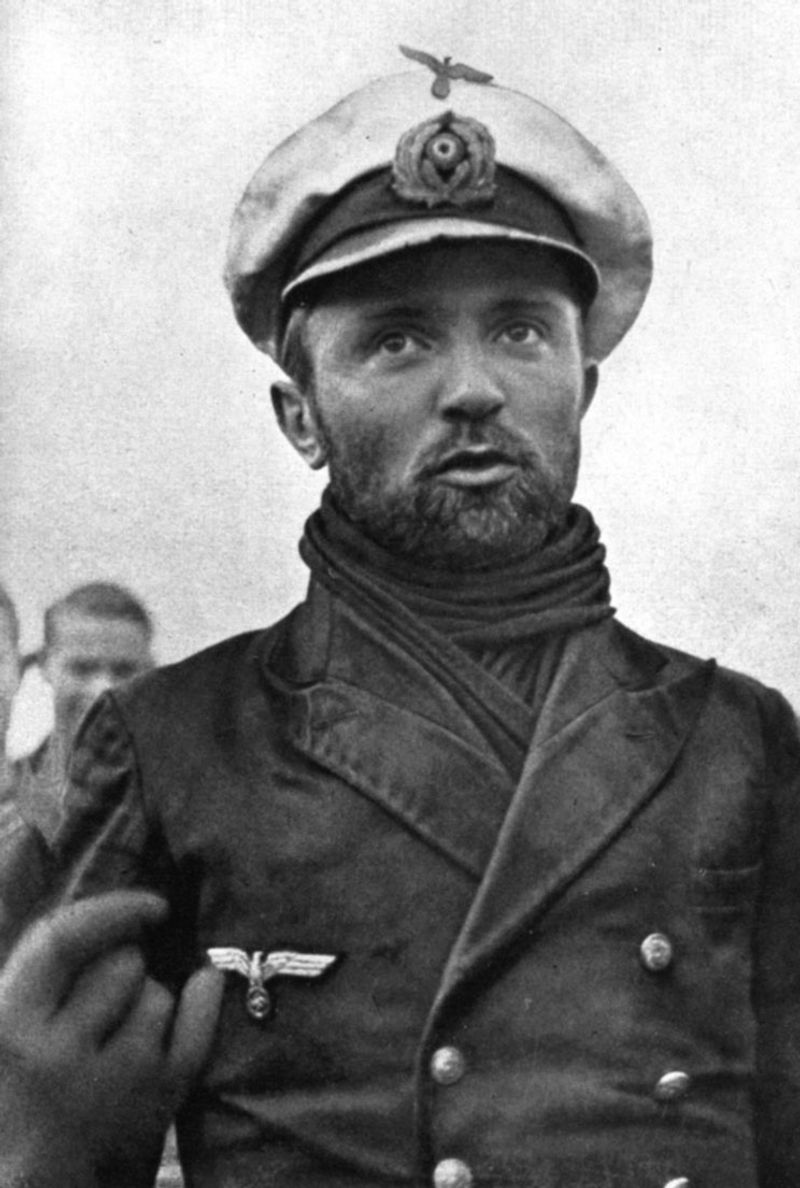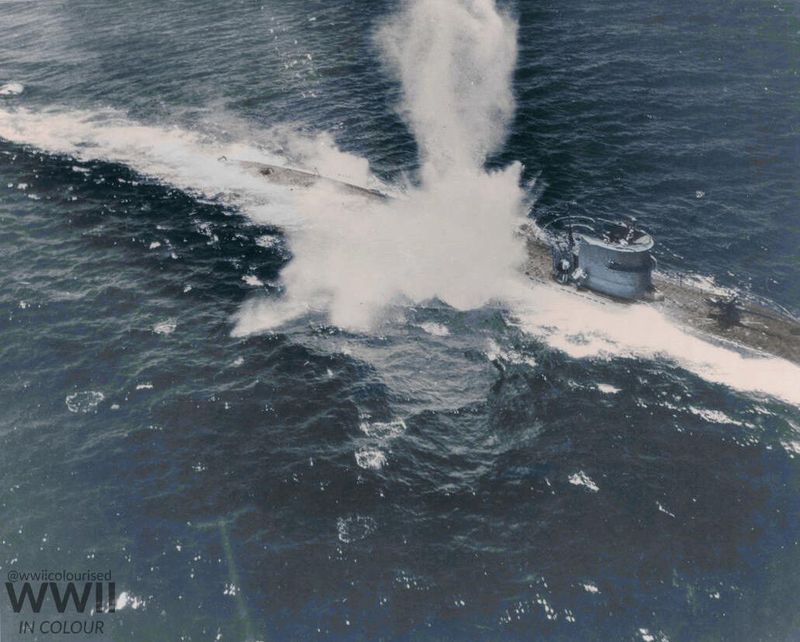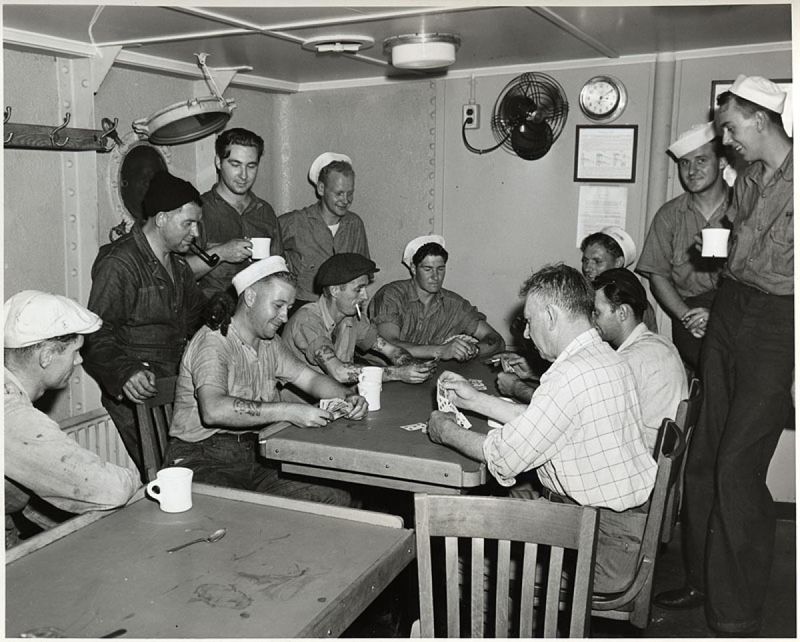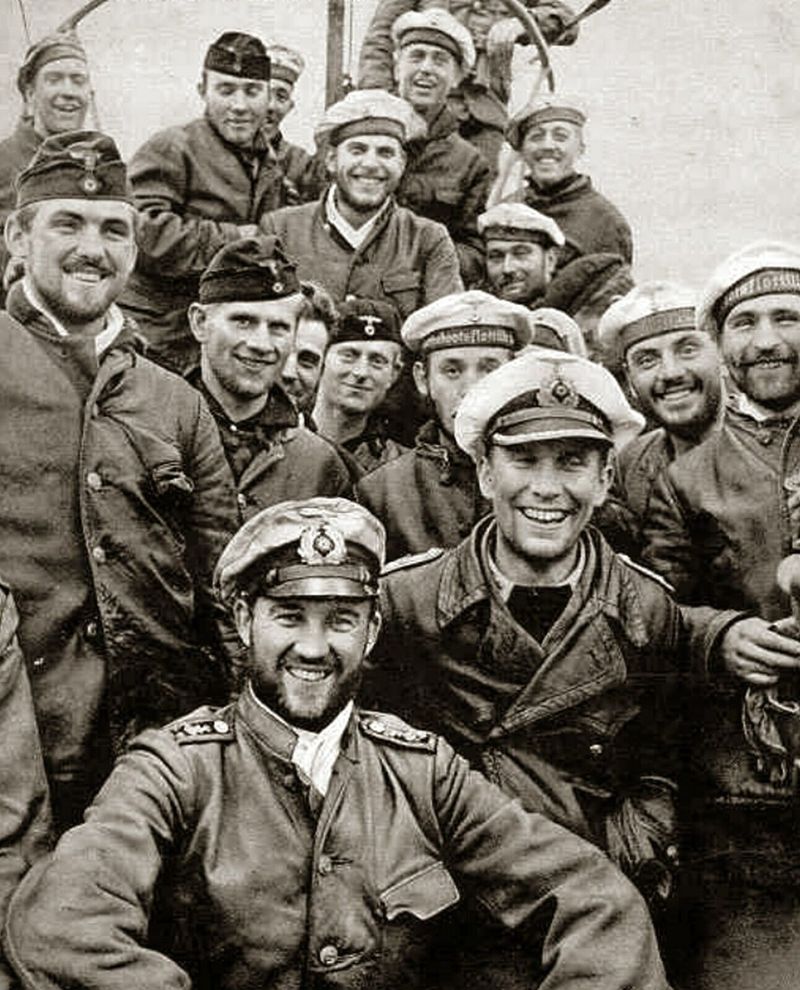German U-boats struck fear into Allied forces during World War II, but life inside these underwater war machines was a special kind of hell. While these submarines were deadly weapons, they became floating nightmares for the men who served in them.
The cramped, dangerous conditions pushed human endurance to its limits, creating an environment where survival itself was a daily battle—even without enemy attacks.
1. Cramped Beyond Imagination
Men lived packed together like sardines in a metal tube barely 10 feet wide. Every inch served multiple purposes—dining tables transformed into workstations, and walkways doubled as storage. The average sailor had space equivalent to a small closet for all personal belongings.
Navigating through the submarine required a sideways shuffle past equipment, supplies, and fellow sailors. Many developed a permanent hunch from constantly ducking under pipes and equipment.
The lack of personal space meant zero privacy and constant physical contact with crewmates. After months at sea, this enforced intimacy created a strange brotherhood where boundaries disappeared entirely.
2. No Showers for Weeks
Personal hygiene quickly became a luxury of the past once a U-boat left port. Fresh water was precious cargo, prioritized for drinking and cooling the submarine’s engines. Sailors rationed what little they had for brushing teeth and occasional sponge baths.
Body odor permeated everything within days. Clothes became stiff with salt, sweat, and diesel fuel. Many crew members developed painful skin conditions from the constant dampness and lack of cleanliness.
Veterans recalled the unmistakable ‘U-boat smell’—a potent mixture of unwashed bodies, diesel fumes, and rotten food that clung to them even after returning to land. This stench became so normal that returning sailors couldn’t even detect it on themselves.
3. Rotten Food Was the Norm
Fresh provisions vanished within the first week at sea. Bread quickly grew fuzzy with mold in the humid conditions. Eggs and dairy products spoiled rapidly, forcing crews to consume them quickly or watch them rot.
As missions stretched into weeks and months, meals deteriorated to canned meat, hard biscuits, and whatever could be preserved. Weevils and maggots frequently appeared in food stores. Rather than discarding infested provisions, hungry sailors simply picked out what they could or ate the protein-rich insects along with their meals.
The galley chef became a magician of sorts, disguising spoiled ingredients with strong spices and creative preparation to make them somewhat palatable.
4. Sleeping Shifts Were Rotated
Sleep became a precious commodity shared through an arrangement called ‘hot bunking.’ With bunks for only about two-thirds of the crew, sailors would crawl into beds still warm from the previous occupant. The sheets quickly became filthy and damp with multiple men’s sweat.
Hammocks strung between torpedoes provided additional sleeping spots. Some desperate crew members even curled up atop the torpedoes themselves, using these instruments of death as makeshift beds.
Sleep quality suffered tremendously from constant noise, motion, and interruptions. Men developed the ability to fall asleep instantly whenever possible—a survival mechanism born from chronic exhaustion that many carried with them long after the war ended.
5. Extreme Psychological Strain
Mental breakdown lurked constantly beneath the surface for U-boat crews. The combination of isolation, danger, and primitive living conditions created psychological pressure unlike anything most humans experience. Sailors developed thousand-yard stares as missions dragged on.
Depth charge attacks were particularly traumatizing. Men would sit in complete silence, lights dimmed, listening to explosions drawing closer, never knowing if the next would crack their hull and send them to a watery grave. Some would rock silently or vomit from fear.
Many submariners suffered from undiagnosed PTSD for decades after the war. German military records show numerous cases of sailors who simply ‘snapped’ during long patrols, requiring restraint by fellow crewmen.
6. No Privacy — Not Even to Use the Toilet
The single toilet aboard early U-boats served the entire crew of 40-60 men. Located near the galley, this toilet was often blocked off by food supplies during the early days of a mission. When nature called, sailors had to move crates and navigate past shipmates to reach it.
Using the toilet meant performing one’s most private bodily functions within earshot of the entire crew. The submarine’s ventilation system ensured that any associated smells circulated efficiently throughout the vessel.
When submerged under attack, the toilet couldn’t be flushed due to noise concerns. Emergency containers served as backup facilities during these tense periods, adding another layer of indignity to an already dehumanizing situation.
7. Constant Fear of Suffocation
Oxygen became a precious resource during prolonged underwater operations. Carbon dioxide levels would gradually rise, causing headaches and confusion among the crew. Men would pant like dogs, struggling to extract enough oxygen from the increasingly toxic air.
Battery-powered underwater operation produced hydrogen gas—an invisible killer that could cause explosions if it reached critical levels. Special canaries were sometimes kept aboard as early warning systems; when the birds showed distress, the air was becoming dangerous.
Sailors developed a sixth sense about air quality, learning to detect subtle changes in the atmosphere that might signal impending danger. Many recalled hallucinating from oxygen deprivation during particularly long submersions, seeing phantoms moving through the cramped corridors.
8. U-Boats Were Freezing Cold
The metal hull conducted cold from the surrounding ocean directly into the living quarters. In North Atlantic waters, temperatures inside could drop to near-freezing. Sailors wore multiple layers of clothing even while sleeping, their breath visible in the frigid air.
Condensation formed constantly on every surface, creating a perpetual indoor rain. Bunks became soggy, books grew moldy, and clothing never fully dried. Many sailors developed painful fungal infections and trench foot from the constant dampness.
The combination of cold and humidity seeped into bones, creating a chill that veterans claimed never fully left them. Some reported feeling phantom cold spots on their bodies decades after the war—a physical memory of their time beneath the waves.
9. Every Mission Was a Death Sentence
U-boat service carried the highest casualty rate of any military branch in World War II. By war’s end, three out of every four German submariners perished—over 30,000 men lost to the depths. Veterans recalled the grim ritual of watching friends depart on missions, knowing they would likely never return.
The average life expectancy of a U-boat dropped dramatically as Allied anti-submarine tactics improved. Many crews survived only two or three patrols before meeting their end. Letters home were written with the gravity of final goodbyes.
Despite these odds, replacement crews continued to volunteer, driven by propaganda, duty, or simple fatalism. The submarine service maintained its elite status even as it became increasingly suicidal to serve.
10. Fresh Air Was a Rare Luxury
Surfacing the submarine exposed it to enemy detection, making fresh air a dangerous indulgence. When a U-boat did surface, sailors would rush to the conning tower in shifts, gulping down precious minutes of clean oxygen. These brief moments under open sky became treasured memories during long patrols.
Below decks, the atmosphere grew increasingly toxic. Diesel fumes mixed with cooking odors, human waste, and body odor to create a nauseating cocktail that newcomers found unbearable. Veterans’ lungs adapted, developing what they called ‘U-boat breath.’
The rare luxury of a cigar or cigarette actually improved the submarine’s smell temporarily by masking the underlying stench. Many non-smokers began the habit simply to combat the oppressive odors of underwater life.
11. Boredom Between Terrors
Long stretches of inactivity punctuated by moments of extreme danger created a psychological rollercoaster. Sailors invented elaborate games using whatever materials were available—carved chess pieces, hand-drawn cards, or simple word games passed time during endless patrols.
Reading material became precious contraband, passed between crew members until pages fell apart from constant handling. Some men kept detailed journals, creating invaluable historical records of submarine life. Others learned musical instruments, their melodies providing rare moments of beauty in the metallic environment.
The contrast between mind-numbing boredom and heart-stopping terror created a unique form of stress. Many sailors described feeling most alive during attacks, the adrenaline breaking through weeks of monotony.
12. Loyalty Was Everything
Brotherhood formed in these floating steel coffins transcended normal human bonds. Men who served together developed an almost telepathic understanding, anticipating each other’s movements in the confined space. Survival depended on absolute trust in one’s crewmates.
U-boat veterans rarely spoke about their experiences after the war, but when they did, it was about their comrades rather than battles or sinkings. The intensity of submarine service created relationships that lasted lifetimes. Many crews continued meeting annually until old age claimed them one by one.
Perhaps most telling was how many survivors expressed willingness to return to those hellish conditions if it meant rejoining their crew. The shared suffering created a connection deeper than family—a bond forged in the pressure cooker of underwater warfare.
